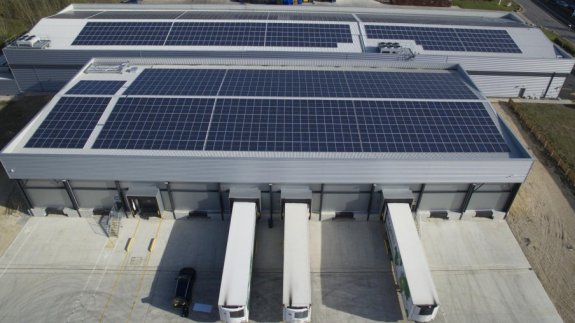One in 10 small businesses are now generating their own electricity on site, according to the Federation of Small Businesses (FSB).
It said 12% of its members are primarily using solar panels to produce their own energy, which showcases small businesses are realising the benefits the renewable source offers.
Since 2012, the cost to install a 50kW system has dropped by 30% which means businesses are paying just 5p/unit or less for their electricity. That’s less than half the price you would pay from major electricity suppliers at around 11p-15p per unit and these prices are set to rise by 5%-10% at the end of April 2017 so the savings will be even greater.
What’s more, the 5p per unit cost solar equates to be fixed for the next 25 years. Can you imagine what electricity prices will be in 25 years’ time? Your business will never be exposed to energy price rises again from solar electricity. Knowing what you will pay for the next 25 years also offers a major benefit when it comes to financial forecasting.
Making a return on investment is key when deciding to invest in solar panels. Solar PV offers an ROI of 12%-16% or higher – considerably more than any UK bank is offering.
Average payback length is six to eight years and your solar investment can be cash flow positive in as little as two years. With low interest rates, solar is therefore viewed as a low risk investment. There are also tax benefits when installing solar because it is classed as plant and machinery and therefore eligible for capital allowances.
A business partnership paying 40% tax can claim back 40% of the installation costs in their next tax returns. What this means is a £50,000 investment effectively costs the business just £30,000. This also makes the first year return on capital significantly higher and the cost of producing a unit of electricity significantly lower at 2p to 3p.
Solar panels are also highly reliable and require little maintenance. Good quality solar panels will be warranted for 25 years and after this time should still be producing 80% of the original output capabilities. The lifetime of solar panels is predicted to be at least 40 years.
Have you considered EVs for your business?
Undoubtedly an electric vehicle is cheaper to run than a diesel or petrol car but the savings can be even greater with solar power. The cost per mile to charge an electric car from the grid is around 4p-5p. Compare this to charging your car from solar power and the costs drops to just 2p per mile.
A well designed solar PV system can help a business become energy independent. This means you can reduce your reliance on the grid and secure your future energy at a fixed rate.
Commercial solar panel systems allow businesses to operate with their own self-generated clean energy. This provides enormous benefits for a company’s CSR reports. For example, 150 solar panels (39kW) producing 9,400 units of energy per annum can help a company avoid 17 tonnes of CO2 each year.
Generating your own energy is the future and offers both financial and operational benefits. When choosing a solar installer, make sure they are trustworthy, honest and can provide customer references. Look for a company with an in-house installation team who are fully qualified to work on the roofs.
They should also not be tied to one panel manufacturer and therefore be able to offer the best solution for your requirements and budget. There is a wide variety of products available on the market which vary in quality and price so don’t be tempted to buy cheap products as solar panels will last for 40 years.
Ben Harrison, Director at www.mypoweruk.com.
This is a promoted article.





